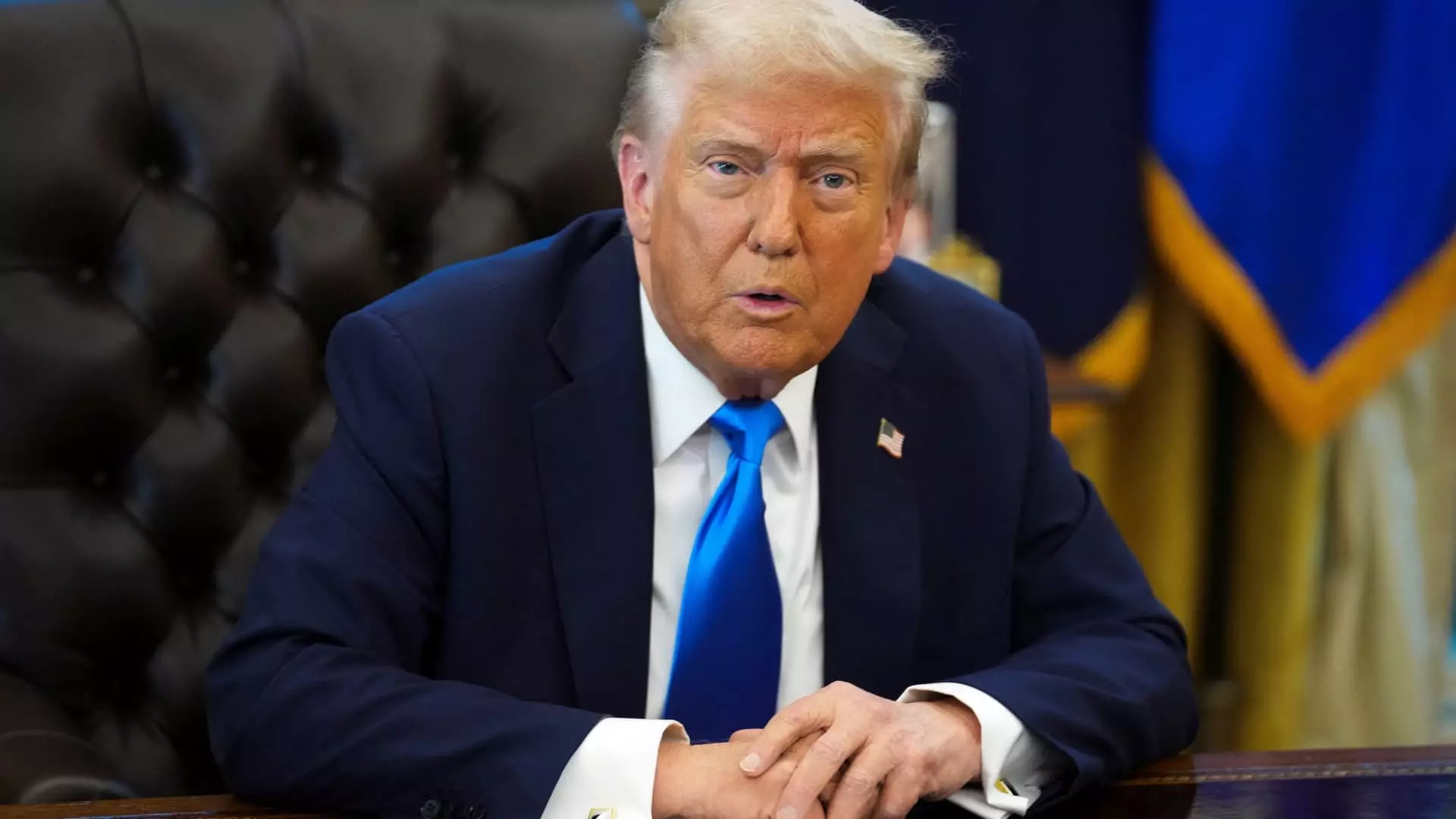In the ongoing saga surrounding TikTok’s fate in the United States, the rhetoric often veers into the realm of patriotic symbolism, but beneath this veneer lies a troubling manipulation of national interests. When former President Donald Trump touts the involvement of American business elites like Lachlan Murdoch, Larry Ellison, and Michael Dell as “patriots” committed to the nation’s security, it’s a narrative that oversimplifies complex economic and geopolitical realities. This portrayal elevates corporate figures to hero status, glossing over the deeper implications of such deals—namely, the surrender of digital sovereignty and the perpetuation of a corporate-political alliance that benefits the elite under the guise of national security.
The language employed in these negotiations often echoes a patriotic fervor that masks the underlying economic interests. While Trump claims that these “great people” are dedicated to the United States, it’s worth critically examining whether their involvement truly serves the broader public good or merely consolidates power and wealth within an already cozy nexus of influence. The narrative of “American patriots” working to save TikTok simplifies a multifaceted geopolitical chess game, one that risks undermining genuine policy grounded in democratic accountability.
Corporate Power and National Security: A Concerning Paradox
The role of major American corporations such as Oracle and Dell in the TikTok deal signals a troubling blurring of lines between private enterprise and government interests. The White House’s assertion that an American-controlled board and the management of TikTok’s algorithm by Oracle are necessary security measures appears to be both a strategic move and a controlled narrative. However, this raises questions about the true sovereignty of digital platforms operating in a globalized economy where corporate influence often eclipses national oversight.
Furthermore, embedding corporate giants into national security solutions risks entrenching a model where economic powerhouses dictate the contours of digital life, privacy, and data governance. The conflation of corporate interests with national security complicates the political landscape, providing corporations with leverage and a veneer of patriotism that can obscure their true motivations—profit motives, regulatory capture, or influence over governmental decision-making processes. This precarious dependence on private-sector actors to safeguard democracy is fundamentally flawed and invites skepticism about the long-term implications for civil liberties.
Diplomatic Stagecraft Versus Genuine Policy
The negotiations between the U.S. and China over TikTok’s future illustrate another layer of the performative spectacle prevalent in modern geopolitics. Trump’s boasts about deals “getting ready” and positive calls with Xi Jinping serve more as political theater than substantive policy progress. Meanwhile, China’s diplomatic stance emphasizes respect for market rules and adherence to Chinese laws—an acknowledgment of mutual economic interests, but also a reminder of the persistent power asymmetries at play.
This diplomatic storytelling complicates the public’s understanding of what’s truly at stake. The narrative of cooperation is carefully curated, yet the underlying tensions—concerning national security, technological dominance, and trade—remain unresolved. We are witnessing a global power struggle, cloaked in claims of mutual respect and shared interests, but driven largely by concerns over technological supremacy and economic influence. These talks, often punctuated with optimistic declarations, obscure the fact that the real battles are about control—control over data, over markets, and over the very fabric of modern information society.
The Myth of American Innovation and Sovereignty
Central to the debate about TikTok’s future is the myth that American enterprise can—or should—dictate the course of global technology. The involvement of U.S. tech titans in the process is being spun as a patriotic effort to keep Chinese influence at bay, but it’s also a reflection of America’s deep reliance on corporate giants as proxies in geopolitical conflicts. The narrative imbued with patriotism creates a false sense of control, as if these entities are the guardians of national security when, in reality, they are mere pawns in larger international games.
This oversimplification risks diverting attention from implementing genuine policies that protect citizens’ privacy and democratic integrity rather than relying on corporate goodwill or superficial oversight. Instead of cultivating a transparent and resilient digital sovereignty, the narrative promotes a sanitized depiction of corporate power, naively believing these institutions will prioritize public interests over profits, a hope that is often naïve and misplaced. Without rigorous regulation and genuine public oversight, the so-called patriotism branding is more about shielding business interests than defending the nation’s core values.
In the end, the TikTok deal, cloaked in patriotic rhetoric, reveals a troubling facet of contemporary geopolitics—the conflation of corporate influence with national identity. It exposes how narratives of patriotism can be weaponized to justify compromises that benefit a select few at the expense of broader societal interests. True sovereignty and democratic accountability are sacrificed in the ongoing play of global economic and strategic interests masked as patriotic endeavors.


Leave a Reply